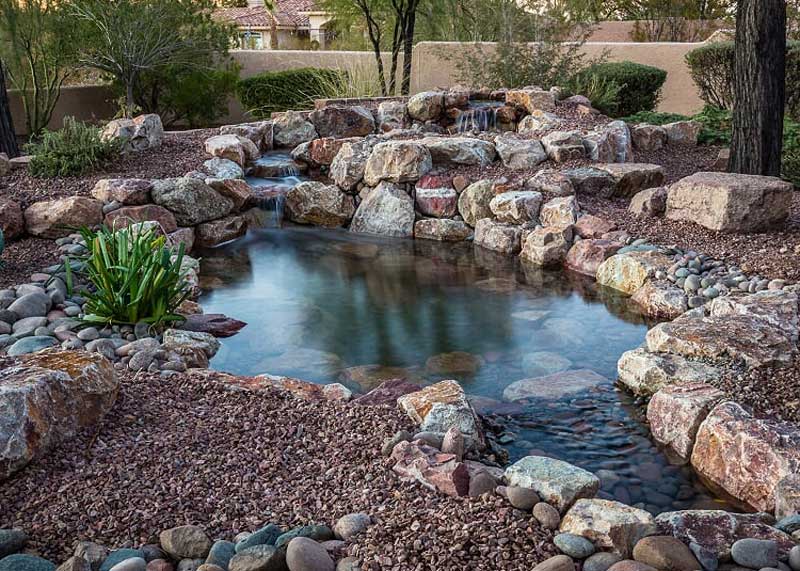Cold winters are hard on the inhabitants of a pond, specially fish. Cooler temperatures have a negative impact on their immune system’s ability to fight off infection. Colder temperatures can impact the health of your pond.
The trees around your pond will shed leaves in winter. If you do not move quickly to address the problem, your pond can become an eyesore. Bad water quality will affect the health of plants and animals in the pond.
Here are some tips for maintaining your pond in winter.
Feed Your Fish Less Often
Fish enter a period of dormancy in winter. Biological changes in your fish impact their metabolism and they need more time to digest their food. If you feed your fish frequently during this period, uneaten food will impact your water quality.
To steer clear of this issue, feed your fish less often (two-three times a week) during winter. If the temperature of your pond drops below five degrees, feed your fish once a week. Sturgeons should be fed more frequently than other fish as they keep swimming in winter.
Feed your fish foods especially formulated to aid digestion during the cold season. Use wheatgerm-based foods when the water temperature is between 4 and 10 degrees as they contain less protein, which makes it easier for fish to digest them in cold temperatures.
Install Netting
Decomposing leaves in your pond is a recipe for disaster and can impact your water quality. Install netting to prevent leaves and debris from getting into your pond. You may have to check your netting and remove debris every day to keep up with the influx of leaves. Some leaves will still sink to the bottom of the pond. Periodically remove them.
Take Care of Your Plants
The plants in your pond play a vital role in maintaining a healthy pond ecosystem. They provide shade to fish. Pond plants are a part of your pond’s filtration system that removes toxins such as ammonia, nitrates, and nitrogen from the water.
As temperatures get colder and your plants start shedding leaves, cut back the dead plant material. Periodically remove dead foliage and floating debris from the surface of the water. This will help maintain healthy pond oxygen levels.
Care for Your Pond Equipment
Cleaning the filter before shutting it off will destroy bacterial colonies in it. Look for a filter with a winter setting. Make sure the pond pump is placed sufficiently deep into the water. If your region receives snow, use a filter made from rotationally molded polyethylene. Make sure it can bend and bow.
Has your pond fallen into disrepair? Let Pondscapes help. We are a top-rated pond repair company near you. We use time-tested techniques to restore ponds to their former glory. To discuss your requirement with one of our professionals, call 480-987-7781.



Recent Comments